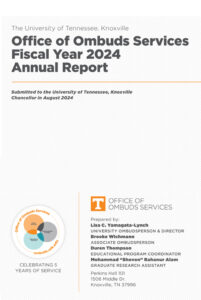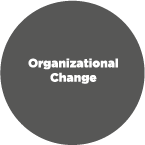Meet our ombuds in person, in Zoom, or on the phone!
Ombuds Events Calendar | Register for Workshops
The Ombuds Annual Report presents:
- a synthesis of visitor themes and traffic trends as well as composite narratives of visitor experiences based on those themes.
- educational programming participation trends and feedback
- details of Ombuds Office growth and new initiatives.
Our annual report does not provide generalizable claims about the entire population that the office serves, and it does not provide specific information regarding individual visitors.
Reflecting on findings from the Ombuds’ 2024 Annual Report, we identified the following areas for focus for FY25:
- Awareness Building: Strengthen communication strategies to increase constituents’ understanding of how ombuds services can empower them to navigate challenges related to experiences at UT.
- Evaluative Relationships: Enhance educational programming and visitor services to support supervisors and academic advisors in constructive communication and leadership.
- Leadership Thought Partners: Strengthen relationships with campus leaders to help them address organizational challenges in a way that promotes a culture of dignity and psychological safety.

